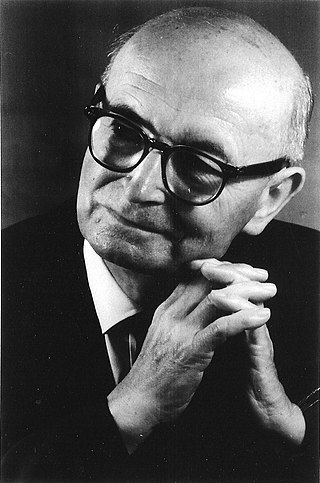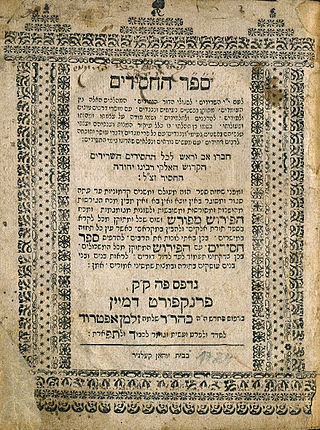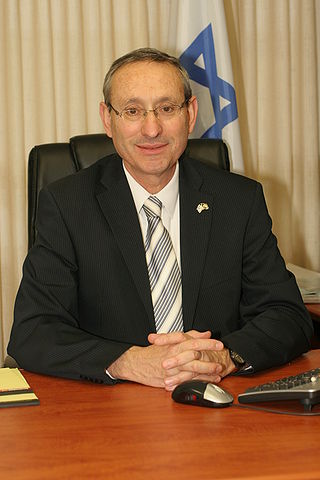Related Research Articles

Jewish holidays, also known as Jewish festivals or Yamim Tovim, are holidays observed in Judaism and by Jews throughout the Hebrew calendar. They include religious, cultural and national elements, derived from three sources: biblical mitzvot ("commandments"), rabbinic mandates, and the history of Judaism and the State of Israel.

The role of women in Judaism is determined by the Hebrew Bible, the Oral Law, by custom, and by cultural factors. Although the Hebrew Bible and rabbinic literature mention various female role models, religious law treats women differently in various circumstances. According to a 2017 study by the Pew Research Center, women are slightly more numerous among worldwide Jewish population (52%).

Haredi Judaism consists of groups within Orthodox Judaism that are characterized by their strict adherence to halakha and traditions, in opposition to modern values and practices. Its members are usually referred to as ultra-Orthodox in English; however, the term "ultra-Orthodox" is considered pejorative by many of its adherents, who prefer terms like strictly Orthodox or Haredi. Haredi Jews regard themselves as the most religiously authentic group of Jews, although other movements of Judaism disagree.

Ashkenazi Jews, also known as Ashkenazic Jews or Ashkenazim, are a Jewish diaspora population who coalesced in the Holy Roman Empire around the end of the first millennium CE. Their traditional diaspora language is Yiddish, which developed during the Middle Ages after they had moved from Germany and France into Northern Europe and Eastern Europe. For centuries, Ashkenazim in Europe used Hebrew only as a sacred language until the revival of Hebrew as a common language in 20th-century Israel.

The Hebrew University of Jerusalem is a public research university based in Jerusalem, Israel. Co-founded by Albert Einstein and Dr. Chaim Weizmann in July 1918, the public university officially opened in April 1925. It is the second-oldest Israeli university, having been founded 30 years before the establishment of the State of Israel but six years after the older Technion university. The HUJI has three campuses in Jerusalem and one in Rehovot. The world's largest library for Jewish studies—the National Library of Israel—is located on its Edmond J. Safra campus in the Givat Ram neighbourhood of Jerusalem.
Moshe Greenberg was an American rabbi, Bible scholar, and professor emeritus of the Hebrew University of Jerusalem.
Jewish studies is an academic discipline centered on the study of Jews and Judaism. Jewish studies is interdisciplinary and combines aspects of history, Middle Eastern studies, Asian studies, Oriental studies, religious studies, archeology, sociology, languages, political science, area studies, women's studies, and ethnic studies. Jewish studies as a distinct field is mainly present at colleges and universities in North America.

The Herbert D. Katz Center for Advanced Judaic Studies at the University of Pennsylvania—commonly called the Katz Center—is a postdoctoral research center devoted to the study of Jewish history and civilization.

Shelomo Dov Goitein was a German-Jewish ethnographer, historian and Arabist known for his research on Jewish life in the Islamic Middle Ages, and particularly on the Cairo Geniza.

The Sefer Hasidim or Sefer Chassidim is a text attributed to Judah ben Samuel of Regensburg, a foundation work of the teachings of the Chassidei Ashkenaz. It offers an account of the day-to-day religious life of Jews in medieval Germany, and their customs, beliefs, and traditions. It presents the combined teachings of the three leaders of German Hasidism during the 12th and 13th centuries: Samuel the Chassid, Judah the Chassid of Regensburg, and Elazar Rokeach.

Menahem Ben-Sasson is an Israeli politician and a former member of the Knesset for Kadima. Between 2009 and 2017 he was the president of Hebrew University of Jerusalem, succeeding Menachem Magidor.

Moshe Halbertal is an Israeli philosopher, professor, and writer, a noted expert on Maimonides, and co-author of the Israeli Army Code of Ethics. He currently holds positions as the John and Golda Cohen Professor of Jewish Thought and Philosophy at the Hebrew University of Jerusalem and Gruss Professor of Law at NYU School of Law. In 2021 he was elected to the American Philosophical Society.
Rashi's daughters were the three daughters and only children of the medieval Talmudic scholar, Rashi and his wife Rivka. Their three daughters were Yocheved, Miriam and Rachel. They each married their father's finest students and were the mothers of the leaders of the next generation of French Talmudic scholars. Almost every Ashkenazi rabbinic dynasty traces its ancestry back to either Yocheved or Miriam, and the majority of the tosafists, were recent descendants of Rashi's daughters. All born in Troyes, France, their descendants inhabited Germany, France, and Italy in the early 11th to 15th centuries, with the majority later moving to Eastern Europe, where they established several notable rabbinic dynasties.
Joseph M. Baumgarten was an Austrian-born Semitic scholar known for his knowledge in the field of Jewish legal texts from biblical law to Mishnaic law and including the legal texts among the Dead Sea Scrolls. Baumgarten immigrated to the United States with his family in 1939 as a result of the Anschluss, Germany's occupation of Austria in 1938. In 1950, he was ordained a rabbi at Mesivta Torah Vodaath, a prominent Brooklyn yeshiva. He married Naomi Rosenberg in 1953.

The Israel Institute for Advanced Studies is a research institute in Jerusalem, Israel, devoted to academic research in physics, mathematics, the life sciences, economics, and comparative religion. It is a self-governing body, both in its administrative function as well as its academic pursuits. It is one of the nine members of the symposium Some Institutes for Advanced Study (SIAS).

Joseph Yahalom is a professor of Hebrew literature at the Hebrew University of Jerusalem. Since 1983, he has been a member of the Academy of the Hebrew Language.

Ruth Mazo Karras is an American historian and author of the Middle Ages whose interests are masculinity and sexuality in Christian and Jewish society during the Middle Ages. Her book, Unmarriages: Women, Men, and Sexual Unions in the Middle Ages, was named co-winner of the American Historical Association's Joan Kelly Memorial Prize in Women's History for 2012.

Michal Linial is a Professor of Biochemistry and Bioinformatics at the Hebrew University of Jerusalem (HUJI). Linial is the Director of The Sudarsky Center for Computational Biology at HUJI. Since 2015, she is head of the ELIXIR-Israel node.

Dr. Ido Noy is a curator and historian of Jewish art and history, folklore, popular art and ephmera.
Tamar Herzig is an Israeli historian of Early Modern Europe who specializes in religious, social, minorities, and gender history, with a focus on Renaissance Italy. She is the Konrad Adenauer Professor of Comparative European History at Tel Aviv University and since 2021 also serves as the Vice Dean for Research of the Faculty of Humanities.
References
- ↑ huji-primo.hosted.exlibrisgroup.com https://huji-primo.hosted.exlibrisgroup.com/primo-explore/fulldisplay?docid=972HUJI_ALMA21186207460003701&context=L&vid=972HUJI_V1&lang=en_US&search_scope=default_scope&adaptor=Local%20Search%20Engine&tab=default_tab&query=any,contains,%20Elisheva%20Baumgarten&facet=rtype,include,thesis&offset=0 . Retrieved 2022-08-06.
{{cite web}}: Missing or empty|title=(help) - ↑ "Beyond The Elite". beyond-the-elite.huji.ac.il. Retrieved 2022-08-06.
- ↑ "Elisheva Baumgarten - School of Historical Studies | Institute for Advanced Study". www.ias.edu. 2017-07-11. Retrieved 2022-08-06.